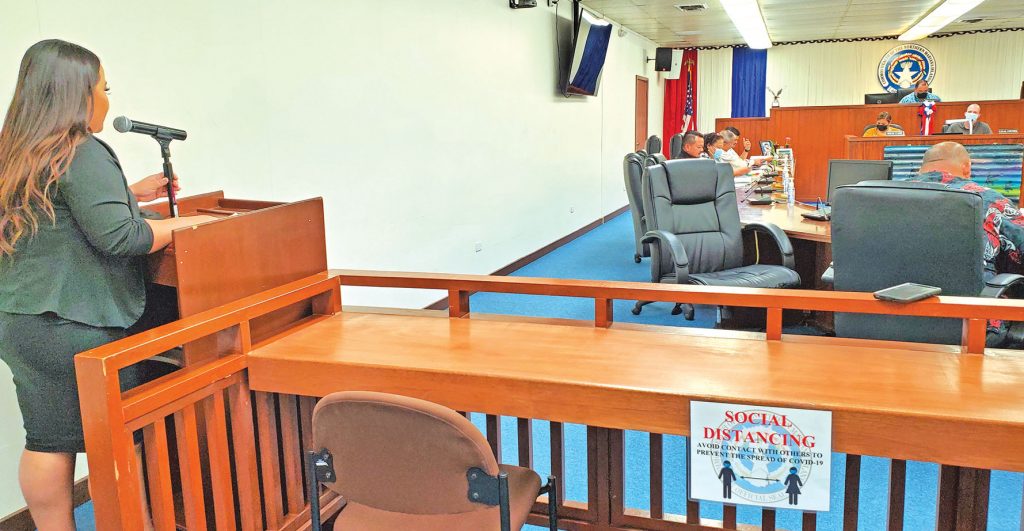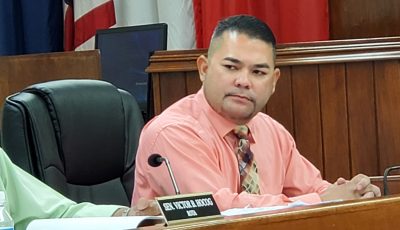Cannabis Commission managing director supports bill to clarify their powers

CNMI Cannabis Commission managing director Monique Boyer Sablan explains to members of the House of Representatives during a session Thursday of the commission’s support for a bill that clarifies the commission’s powers and makes needed changes to the Commonwealth Code to support adequate development of the cannabis industry in the Commonwealth. (FERDIE DE LA TORRE)
CNMI Cannabis Commission managing director Monique Boyer Sablan has expressed support for the intent of a bill that would clarify the commission’s powers and make needed changes to the Commonwealth Code to support adequate development of the cannabis industry in the Commonwealth.
Speaking during the public comment portion of the House of Representatives session last Thursday, Sablan said House Bill 22-78 is in line with their duty as regulators of this new industry, promote their mission to fairly and effectively continue to ensure the adequate functioning of the industry, promote a robust regulatory system for cannabis licensees to adhere to, and encourage adult-use in the Commonwealth.
Rep. Joseph Lee Pan T. Guerrero (R-Saipan) introduced the bill during Thursday’s session.
Sablan said the commission supports the amendment proposed in the bill as it clarifies that the prohibition within a subsection of the Commonwealth Code should not apply to persons between the age of 18 to 21 years who have a valid recommendation for medical marijuana use issued by a doctor licensed in the CNMI or by a country of origin for a non-CNMI resident patient. She said medical marijuana patients that fall within this age bracket have been exempted from certain prohibitions in the law and that this amendment further clarifies their medicinal marijuana privileges.
Sablan said the commission also supports the bill’s proposed amendment that removes the line item that prevents the commission from denying a person 21 years of age or older from obtaining a homegrown marijuana industry card. She said since the initiation of the homegrown industry, the commission believes that there should be reasonable grounds set in place for denial.
Sablan said they also support the bill’s proposed amendment to remove the set expirations of all commercial cannabis licenses on Sept. 30 of each year, which will allow licenses to expire on the date of licensing the following year.
She said with commercial cannabis charged for renewal on Sept. 30 of this year, the commission has been thoroughly reviewing all renewal applications to ensure that the existing businesses are compliant with Commonwealth law and the cannabis regulations.
“Within the coming years, the commission anticipates the licensing of several new cannabis businesses. With this, the across-the-board expiration date for all licenses will evidently pose an administrative burden on the commission and may cause unwarranted delays in renewals,” Sablan said.
This amendment, she said, will allow the commission to be able to spread out the renewal processing per license, which will prevent any administrative setbacks due to capacity.
“More importantly, it will allow my team the ample time to plan, review, and inspect accordingly,” said Sablan, adding that it will allow licensees to be in operation for a full year from the date of licensing-promoting successful business.



























